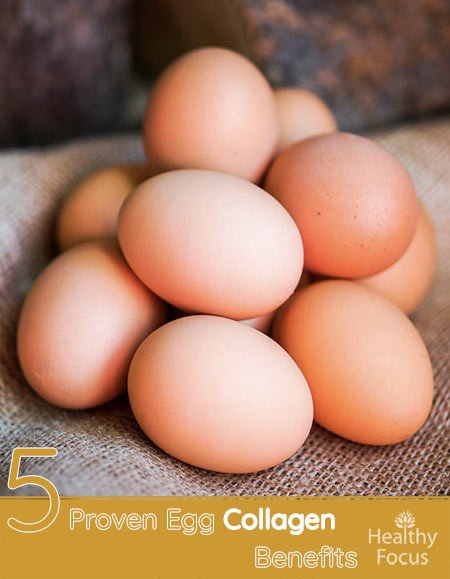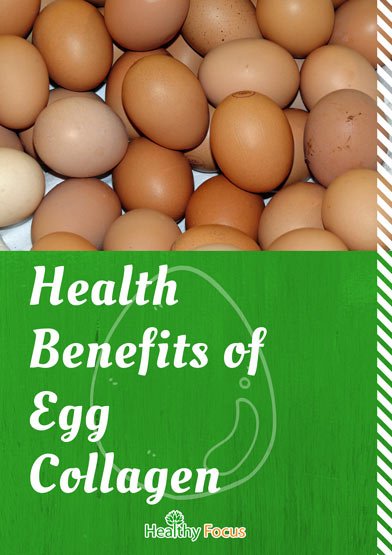Last Updated on December 30, 2018 by Marc Seward
Collagen is a protein found in abundance throughout the body. It is most notably responsible for strengthening the skin and providing it with the elasticity that keeps us looking young and healthy. Besides the skin, collagen is also present in the bones, the muscles and the tendons and is considered to be the glue which binds the body together.
As we get older, so our bodies unfortunately begin to produce less natural collagen. Our skin is often the first place to show the effects. It begins to sag and wrinkle and generally appear far less healthy. We may also start to feel muscular weakness while our joints may also suffer from a weakening of the cartilages.
Collagen is very important to outward appearance and physical ability. Not only does the inevitable aging process inhibit its production but a poor diet, excessive alcohol consumption, smoking and sun damage can also have an adverse effect.
So what do we need to do to increase our body’s supply of collagen?
While dietary sources of collagen are not easy to come by, there is good news for those of you that like eggs. Unlike many products that claim to provide us with collagen, eggs do in fact contain collagen. Studies have demonstrate that collagen is present in the yolk and the membranes of eggs in impressive levels.
Eggs as a source of collagen?
Chicken eggs have two membranes located between the shell and the white of the egg which defend the egg from bacteria. They are also a great source of collagen.
Research conducted as long ago as the 1980s found that the outer and inner membranes contain a substance similar to two types of collagen known as type I and V collagen. (1) More recent research has also established that collagen is present in chicken’s egg yolks. (2)
Type I collagen is by far the most abundant form of collagen in the human body. It is extremely strong and is mainly found in skin tendons, scar tissue, bones and arterial walls. At least 90% of the collagen present in our bodies is the type I form. Type V collagen which is also found in egg membranes is present in the hair, the cell surface and in the placenta.
So, now that we know that eggs can provide us with these important types of collagen, what is them? Unfortunately, the act of cooking your eggs will impact the goodness in the membranes so by far the easiest and most effective way to ensure that you are getting the benefits is to taken an egg collagen supplement.
While the nutritional value of any egg collagen supplement tends to vary, a high quality supplement will still be rich in beneficial protein and amino acids.
Health Benefits of Egg Collagen
We have already looked at the benefits of collagen here but this article intends to delve into the benefits of eg collagen in particular.
While you can get a certain amount of collagen from eating eggs, your best bet for increasing your collagen levels sufficiently to have a real impact is to take egg collagen supplements. The following health benefits are the main reasons that you should consider doing just that.
1) Incredible Skin Benefits of Egg Collagen
As we inevitable age, we also produce less collagen naturally and this has very obvious and unwanted effects on our appearance. Our skin will lose its strength and elasticity, it begins to loosen and sag and wrinkles come to the fore.
If you want to avoid some of these effects, it is absolutely vital that you give yourself a collagen boost.
Recent studies have confirmed that collagen derived from chicken egg membranes can have an extremely beneficial effect on your skin’s health and appearance.
A recent study published in 2015 explored the potential cosmetic use of eggshell membranes especially their ability to protect against wrinkles, loss of moisture and sun damage. The results demonstrated that the membranes had excellent effects on the skin’s health and appearance.
The substance was able to suppress skin aging and mitigate wrinkles caused by sun exposure. (3)
2) Connective tissue and Joint Health
Not only is collagen essential to your skin but it is also vital for the heath of your joints and connective tissues. The collagen derived from egg shell membranes contains important nutrients including hyaluronic acid, chondroitin sulfate and amino acids that can help keep your ligaments and tendons strong.
A study published last year set out to evaluate the effectiveness and safety of an egg collagen supplement called NEM. The supplement was evaluated as a potential treatment for joint pain and flexibility issues linked to connective tissue complaints. The results of the two clinical trials were extremely promising.
The researchers found that in doses of 500 mg taken once each day, the egg collagen supplement had a significant effect on joint pain in the short term and the longer term. (4)
The success of the trial means that egg collagen supplements could be used as a novel treatment for conditions like arthritis, gout, fibromialgia and lupus and represents a potential safe alternative to analgesic and anti-inflammatory medication.
3) For Osteoarthritis
Osteoarthritis affects many millions of people the world over and is the most common type of arthritis. The condition typically occurs when we get older as the cartilages between the bones start to wear down. It can be a very painful and debilitating condition which affects the entire body but is most commonly seen in the knees, hands, spine and hips.
Egg collagen offers some genuine hope to the many sufferers worldwide.
Studies have demonstrated that supplementary collagen derived from eggshell membranes can help relieve the joint pain and stiffness experienced by people with osteoarthritis. Another recent study published in 2009 by the Clinical Rheumatology journal examined its effect on people suffering from osteoarthritis of the knee.
They found that joint stiffness and pain was significantly reduced when participants took the supplement in doses of 500 mg a day. The researchers recommended that egg collagen supplements be included as part of an overall arthritis diet. (5)
4) Improved Joint Mobility
If you are one of the many people suffering from some form of joint pain or stiffness and you find that your range of motion is inhibited, there is more good news.
Another recent study published last year evaluated the effect of hydrolyzed eggshell membranes on joint functions and chronic pain. The participants in the double-blind trial were either treated with eggshell membrane and then given a placebo for a four-week period each time.
The researchers discovered that participants experienced significant improvements in their range of motion all around the body during the period that they were given the egg shell membrane preparation. The major mobility improvements were seen across the board including in the neck, shoulder and knee. (6)
5) Digestive System Support
There is no doubt that collagen is best known for its ability to help the skin and treat joint pain but did you know that it may also play a part in your digestive health?
Two of the amino acids present in egg collagen called glycine and proline help ensure that your digestive tract remains healthy by rebuilding the tissues that line your digestive tract.
This ensures that tiny food particles and harmful bacteria remains inside the gut rather than leaking into the bloodstream where they may cause inflammation.
Studies have demonstrated that these amino acids can protect the body from intestinal inflammation that starts in the gut. (7) Egg collagen can therefore protect your digestive tract from becoming inflamed and reduce the risk to the rest of the body.
How to take Egg Collagen
It is difficult to get the amount of collagen you need from eggs because the cooking process denatures the content of the membranes. It is far better to use supplements which come in several forms. Egg collagen supplements are available in capsule and liquid form as well as powdered form.
If you opt for the powdered egg collagen, you can add it to your favorite smoothie recipes or add a little to your baking recipes.
(1) http://www.ncbi.nlm.nih.gov/pubmed/6203793
(2) http://www.ncbi.nlm.nih.gov/pubmed/27376436
(3) http://www.ncbi.nlm.nih.gov/pubmed/26761801
(4) http://www.ncbi.nlm.nih.gov/pmc/articles/PMC2697588/
(5) http://www.ncbi.nlm.nih.gov/pubmed/19340512
(6) http://www.ncbi.nlm.nih.gov/pmc/articles/PMC4580304/
(7) http://www.ncbi.nlm.nih.gov/pmc/articles/PMC2852991/


Leave a Reply
You must be logged in to post a comment.